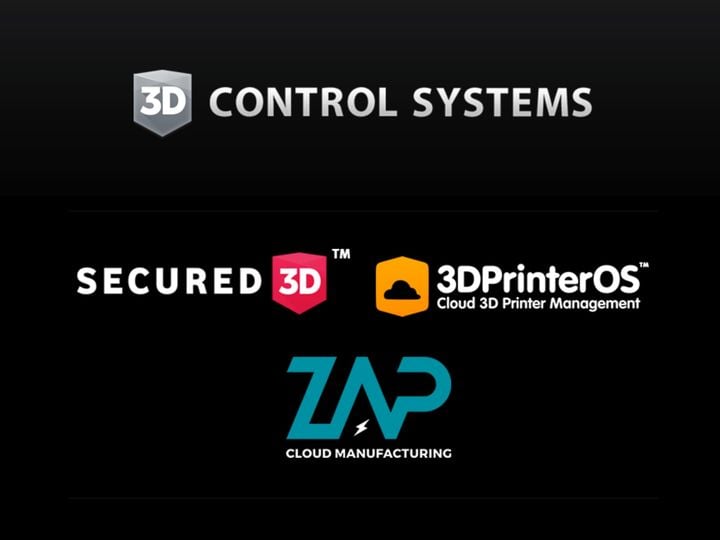
A relatively quiet announcement from the folks at 3DPrinterOS reveals some very big changes for the company.
3DPrinterOS started quite a while ago in 2014 with a simple but brilliant idea: control “dumb” 3D printers through their USB port with a smart set top box. This would enable not only control of the machine but integration with a cloud system that could provide file management, job preparation and much more.
The concept began as a means for individuals to “smarten up” their dumb desktop 3D printers, but the system rapidly evolved into a service more suitable for organizations operating fleets and arrays of 3D printers. As machines are added, the management complexity increases drastically, and systems to oversee them were seen as valuable.
Thus 3DPrinterOS has grown steadily over the years, often partnering with 3D printer manufacturers behind the scenes to provide added value to the manufacturer’s products. One example of this is the KODAK Portrait 3D printer, which actually uses 3DPrinterOS as their smart cloud system for these devices.
But recently the company announced some big changes.
3D Control Systems
The company behind 3DPrinterOS, 3D Control Systems, has changed their CEO, bringing in industry veteran Michelle Brockman to the helm. This is quite a switch for a company that has had the same management for many years previously.
Why the change? I think it has something to do with this:
“In Jan 2021, the company will launch a new platform, 3D Control Systems, to connect all advanced manufacturing equipment in the same way.”
Hold on, did I read that correctly? They have created a well-functioning cloud for 3D printers, but now they are building a similar cloud system for ALL advanced manufacturing equipment?
That could be a very big deal.
Currently a massive amount of manufacturing equipment across the world is much like the desktop 3D printers of old: dumb. They are standalone devices that, while quite useful, don’t often connect to anything. This means they cannot be remotely controlled or monitored, and have inaccessible or manually collected usage statistics.
Unlike the relatively cheap desktop 3D printers, manufacturing equipment typically stays on the workshop floor for many, many years, even decades. Thus even though modern equipment on the market might have connectivity, many older devices still in use do not.
If 3D Control Systems can indeed connect them, this could be a massively productive development for many workshops — and massively profitable for 3D Control Systems.
Wait, there’s more. They say the new service will include:
- A NEW all-in-one platform (CRM/MES/ERP) built for Advanced Manufacturing
- Fully automated workflow connecting industrial 3D printers, CNC, robotics, and more
- Providing real-time data to drive customer outcomes
- I/T compatible network security controls
- Design real-time collaboration portal
- And it’s apparently powered by AI systems under the covers.
This is incredibly ambitious and, if successful, could provide small to medium-sized workshops with advanced management solutions previously unaffordable.
Systems like this being introduced to small workshops could provide them with the first “real” operational management data they’ve ever had, and that could lead to more efficient use of equipment, more effective product sales and much more.
The fact that the system will include CRM (Customer Relationship Management) and ERP (Enterprise Resource Planning) features is quite notable, as those are vital functions adjacent to actual machine operations. Having them integrated could lead to significant process efficiencies.
3D Control Systems, on the other hand, will be able to observe all this activity and perform all kinds of interesting analyses. Imagine, for example, that a small workshop could be presented with “benchmarking data” that shows how well (or poorly) they’re operating versus their peers. That’s the kind of ancillary service 3D Control Systems could offer in the future.
At this time the company is seeking partners who wish to investigate this concept further. If you’re a small to medium-sized workshop operator, this might be worth a call.
